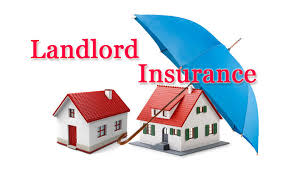7 Insurance Policies Landlords Should Discuss With Their Providers
  

lf you own rental properties then you need to make sure you and your investments are properly protected. Certainly, these types of issues have been on top-of-mind for many of us lately with natural disasters where homes have been destroyed by wildfires in the Northern BC areas last summer. These events bring to light the importance of the right insurance policy, particularly for investors.
The right protection means finding an insurance policy that will cover property damage, liability, and lost rent if the property becomes uninhabitable. As a landlord, your insurance is a bit different than homeowners insurance and typically includes two types of coverage: property and liability protection.
It’s especially important to remember to make the change from a homeowner’s policy to a landlord policy if you previously occupied the property and are transitioning it into a rental property.
To better understand the options available to landlords, here is a breakdown of landlord insurance policy options to discuss with your provider.
1. Property Protection
Insurance policies designed for rental dwellings provide property insurance coverage for damage to the home from fire, lightning, wind, hail, ice, snow, and other types of covered incidents.
It’s important to note that property protection is often referred to as “dwelling coverage” by insurance policy providers.
2. Personal Property Protection
Landlord policies cover personal property left on-site for maintenance or tenant use, such as appliances and lawnmowers. Landlord policies do not cover tenant property; your tenants will need to have their own renters insurance policy to cover damaged tenant property.
Landlords can require that their tenants get renter’s insurance as a condition of the lease. One of the major benefits of renter’s insurance is avoiding disputes about who will replace a renter’s personal property if damage occurs.
3. Liability Protection
Landlord policies can include liability coverage. If one of your tenants or a guest gets hurt on the property, liability protection covers legal fees and medical expenses.
4. Rent Loss Protection
If your property is damaged to the point where it is uninhabitable, your landlord policy will cover the lost rent and pay you the amount of money you would have made in rental income. Rent loss insurance helps you continue to make mortgage payments when a tenant cannot occupy the home.
5. Flood Protection
Your flood insurance policy can include coverage for the building, contents, and replacement costs.
6. Acts of Nature Protection
Your dwelling coverage might be limited to certain types of damage—and exclude other types of peril. Earthquakes, hurricanes, and tornadoes are acts of nature that are not always covered by your standard landlord insurance policy. If you live in an area at risk for earthquakes, hurricanes, or tornadoes, talk to your provider to add additional peril protections.
7. Cash Value vs. Replacement Cost
When you design your landlord insurance policy, you need to consider cash value versus replacement cost when filing a claim.
When repairing or rebuilding damaged property, an actual cost value policy will pay you the actual cost minus the depreciation value of damaged items.
Replacement value will pay you the value equal to replacing a damaged item. Compared to actual cash value, replacement value will get a new item at no out-of-pocket cost to you. If you are willing to pay the difference out of pocket, actual cost coverage will be fine. But if you would rather have insurance take care of everything, replacement cost coverage is the way to go. Understandably, replacement cost coverage will cost more than actual cost coverage.
As you can see, there are many things that must be considered when choosing your landlord insurance policy. It is important to read the policy carefully, discuss options with your agent and ensure that you are fully protected. As we’ve all seen recently, just about anything can happen, so it’s a good idea to be prepared with the proper insurance policy to cover your investment and meet your needs.
|